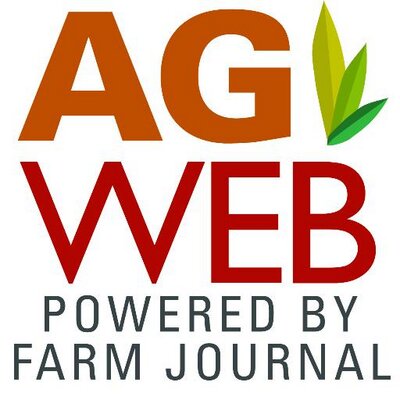
The Current Regulatory Framework to Deal with New Gene-Editing Technologies is Woefully Inadequate, Which Doesn’t Bode Well for Organic
Next week, on June 19th, is the deadline to submit comments for the FDA’s and USDA’s proposed new rules to the Coordinated Framework for the Regulation of Biotechnology, the multi-agency framework that regulates biotech crops.
And with a Trump administration adamantly against introducing any new regulation, the legal system may be our only savior.
The Coordinated Framework, which came out in 1986 and was slightly modified in 1992, is antiquated beyond imagination and completely insufficient to deal with today’s complex and advanced gene-editing techniques. Technology has moved at lightening speed, and the government, which is supposed to oversee biotech products and protect the public, has been unable to keep up.
One prominent example of this is the gene-editing technology called CRISPR-Cas9. The CRISPR mushroom was made famous by scientists at Penn State University who engineered it so that it doesn’t turn brown when cut open. Due to the fact that CRISPR silenced a section of genetic code in the mushroom (turned off the code that makes it turn brown) and did not insert a plant pest, it did not trigger oversight from the USDA.
When the FDA approved genetically-engineered salmon, it did so without a legal framework in place but moved forward anyway. Environmental groups quickly filed a lawsuit to overturn it.
“The FDA does not have the legal authority to approve genetically-engineered animals for food. The agency is using its authority to approve vaccines for animals and jumping to approve genetically-engineered animals. That is not what the law says,” asserts Jaydee Hanson, Senior Policy Analyst at the Center for Food Safety, whose organization is leading the GE-salmon lawsuit.
Dana Perls, Senior Food and Technology Campaigner at Friends of the Earth, is equally as concerned. “GE-animals are being reviewed at the FDA using outmoded rules, and what is being proposed is weak and completely inadequate. There should be full human health and environmental impact assessments (which is not required as of now), long-term safety testing, mandatory labeling of GE-animals, manufacturer liability, and no additional GE-animals should be approved until the GE-salmon litigation is resolved.”
While the proposed FDA and USDA rules may offer increased government oversight in a select number of areas, there will still be far too many gaping holes, which will leave the consumer and environment dangerously unprotected.
“The agencies are still trying to squeeze new gene-editing technologies into models that are decades old. They need to issue new regulations appropriate to the new techniques,” says Jaydee Hanson.
If the courts find that the FDA overstepped its authority by approving GE-salmon, the ruling would force Congress to issue new regulations for GE-animals.
The Trump administration’s anti-regulation stance may backfire, however. A lack of new and modern biotech regulations would hurt us on the global stage as our international trading partners would no longer trust that we are adequately overseeing our food supply. This would lead to more products being blocked for sale to countries around the world.
When it comes to new gene-editing products being labeled, there are many differing opinions as to how last year’s GMO-labeling law will be interpreted and implemented. With the law set to go into effect in 2018, the USDA has not made any final decisions and no one can say with any degree of certainty which gene-edited foods will require labeling.
In regards to organic, there are a few things to consider.
More risky and unregulated GE-products on the market can only mean more contamination and more unintended consequences for the organic food supply. A perfect example of this is how dead GMO-moth larvae could end up in organic broccoli, cauliflower and cabbage, something I wrote about in last week’s Organic Insider.
At the 2016 National Organic Standard Board (NOSB) meeting in St. Louis, members voted to classify new gene-editing techniques, such as CRSIPR, as excluded methods, therefore prohibiting them in organic production. However, the USDA/National Organic Program does not have to accept the NOSB’s recommendation and has yet to make a decision on this.
With gene-editing technologies advancing so rapidly, we are at a time in history when we need new regulations more than ever. A failure to have them will not only hurt organic but will put all consumers, the environment and parts of our economy at real risk.
Sadly, whatever improvements that are eventually made to the Coordinated Framework will just not be enough.
 |
Have a great day! 
Max Goldberg, Founder |
Quick Hits
* When The Washington Post’s story about fraudulent organic grains from abroad was published, the Organic Trade Association responded by saying that the problems identified in the article were not “systemic.” Yesterday, Politico reported that the OTA has now developed an anti-fraud task force to deal with this issue — an issue that is not “systemic.”
* Congrats to Nicky Jackson, Founder and CEO of RangeMe, who received and accepted an “unsolicited” offer for her CPG discovery platform. Terms were not disclosed, but it was reported that investors made a “significant” return on their investment in less than 12 months.
* The buyer, Efficient Collaborative Retail Marketing, just picked up a seriously valuable asset.
* A big shout-out to the very generous David and Michael Bronner of Dr. Bronner’s. Their company just donated $100,000 to Rodale Institute in support of hemp farming and regenerative organic projects.
* A busy week for me here in New York City. I was at Project Nosh yesterday, I’ll be at BevNET tomorrow and FoodBytes on Thursday. To see what is going on at these food events, be sure to follow me on Instagram Stories (@livingmaxwell).
Weekly News Summaries


Organic Produce Cannot Keep Up With Demand
By Ben Potter
With demand for organic produce continuing to surge, the supply gap is growing larger as well.

In the UK, Organic Milk is Not "Good for the Land"
By Jamie Robertson
In the UK, the Advertising Standards Authority has said that an ad making the claim that organic milk is "good for the land" is misleading. The ad has since been banned.

What's Behind the Global Organic Spice Market
By Donna Berry
An interesting look at the complexities and intricacies of the global organic spice market.


The EPA's Possible Collusion with Monsanto
By Paul Thacker
The EPA's Inspector General is investigating possible collusion between a high-ranking EPA official and Monsanto to help shut down a review of glyphosate.

Growing Organic Coffee.....in California
By Stephanie Strom
A fascinating look at the challenges of growing organic coffee in California and why more farmers in the state are switching to this crop.

Organic Farmers Rely on Healthy Soil When Dealing with Climate Change
By Paul Brown
With rainfall patterns becoming more unreliable, organic farmers who treat their soil well are the ones who will thrive.

Daily Harvest Lands Gwyneth Paltrow and Serena Williams as Investors
By John Kell
Daily Harvest, a NYC-based organic smoothie subscription service, has closed its Series A round with celebrity investors Gwyneth Paltrow and Serena Williams.

Late July is Still Grappling with Evaporated Cane Juice Lawsuit
By Elaine Watson
The organic chip maker is still dealing with a class action lawsuit because it used the words "evaporated cane juice" when referring to evaporated cane sugar or syrup.

What Does the Future Hold for Stonyfield?
By Janelle Nanos
With foreign buyers looking to take control of Stonyfield, how will that impact the company's mission and culture?
The material in this newsletter is copyrighted and may be reprinted by permission only. All requests must be in writing. Please use our contact form to request republication rights.
Newsletter Archive
Quick Hits
* When The Washington Post’s story about fraudulent organic grains from abroad was published, the Organic Trade Association responded by saying that the problems identified in the article were not “systemic.” Yesterday, Politico reported that the OTA has now developed an anti-fraud task force to deal with this issue — an issue that is not “systemic.”
* Congrats to Nicky Jackson, Founder and CEO of RangeMe, who received and accepted an “unsolicited” offer for her CPG discovery platform. Terms were not disclosed, but it was reported that investors made a “significant” return on their investment in less than 12 months.
* The buyer, Efficient Collaborative Retail Marketing, just picked up a seriously valuable asset.
* A big shout-out to the very generous David and Michael Bronner of Dr. Bronner’s. Their company just donated $100,000 to Rodale Institute in support of hemp farming and regenerative organic projects.
* A busy week for me here in New York City. I was at Project Nosh yesterday, I’ll be at BevNET tomorrow and FoodBytes on Thursday. To see what is going on at these food events, be sure to follow me on Instagram Stories (@livingmaxwell).
